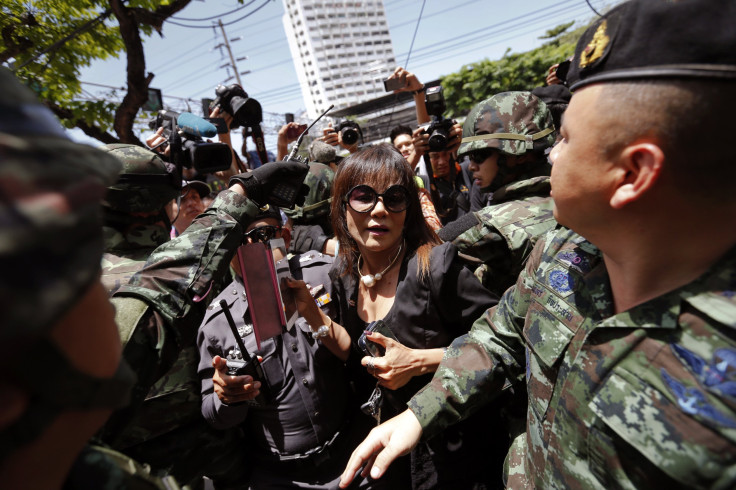Thailand's Army Says Political Leaders Detained A Week, Post Military Coup, To Give Them 'Time To Think'

Thailand's leaders said Saturday that they would keep the country's political leaders, including former prime minister Yingluck Shinawatra, in detention for up to a week, to give them “time to think” and find ways to restore peace in the region.
Army Chief General Prayuth Chan-ocham on Friday met Yingluck and the other political leaders that the army had detained after engineering a military coup Thursday. Protesters meanwhile have gathered on the streets to oppose the detention of the country’s leaders. The coup comes amid elevated political tensions in the country as a constitutional court asked Yingluck and some of her cabinet ministers to step down, charging them with abuse of power.
"[The detention is a] bid for everybody who is involved in the conflict to calm down and have time to think," Col. Weerachon Sukondhapatipak, a deputy army spokesperson, said, according to Associated Press, adding: "We don't intend to limit their freedom, but it is to relieve the pressure."
Sukondhapatipak added that the leaders are being treated well and that the military, which imposed travel bans on more than 100 leaders on Friday, is just trying to accomplish a political compromise between the two sides. The army personnel also summoned nearly 35 academics, who had been expressing their views openly, and had asked them to “maintain peace and order," AP reported, though it was not clear whether they would be detained.
"The military claiming to be a mediator in the Thai conflict, that is all just nonsense," Pavin Chachavalpongpun, a Kyoto University professor of Southeast Asian studies who had been summoned as well, said, according to AP, adding: "This is not about paving the way for reform and democratization. We are really going back to the crudest form of authoritarianism."
Many countries including the U.S. have condemned the military coup, and the White House Friday suspended a $3.5 million military aid package. Marie Harf, a State Department spokeswoman, said that Washington was also reviewing another $7 million payment, which was direct U.S. assistance.
The latest military coup marks the 12th time in eight decades that the military has taken control in order to restore peace.
"The regime must immediately clarify a legal basis for this move and where they are. No one should be detained on the basis of their peaceful political opinions or affiliations," Richard Bennett, Amnesty's Asia-Pacific director, said according to AP.
© Copyright IBTimes 2024. All rights reserved.






















